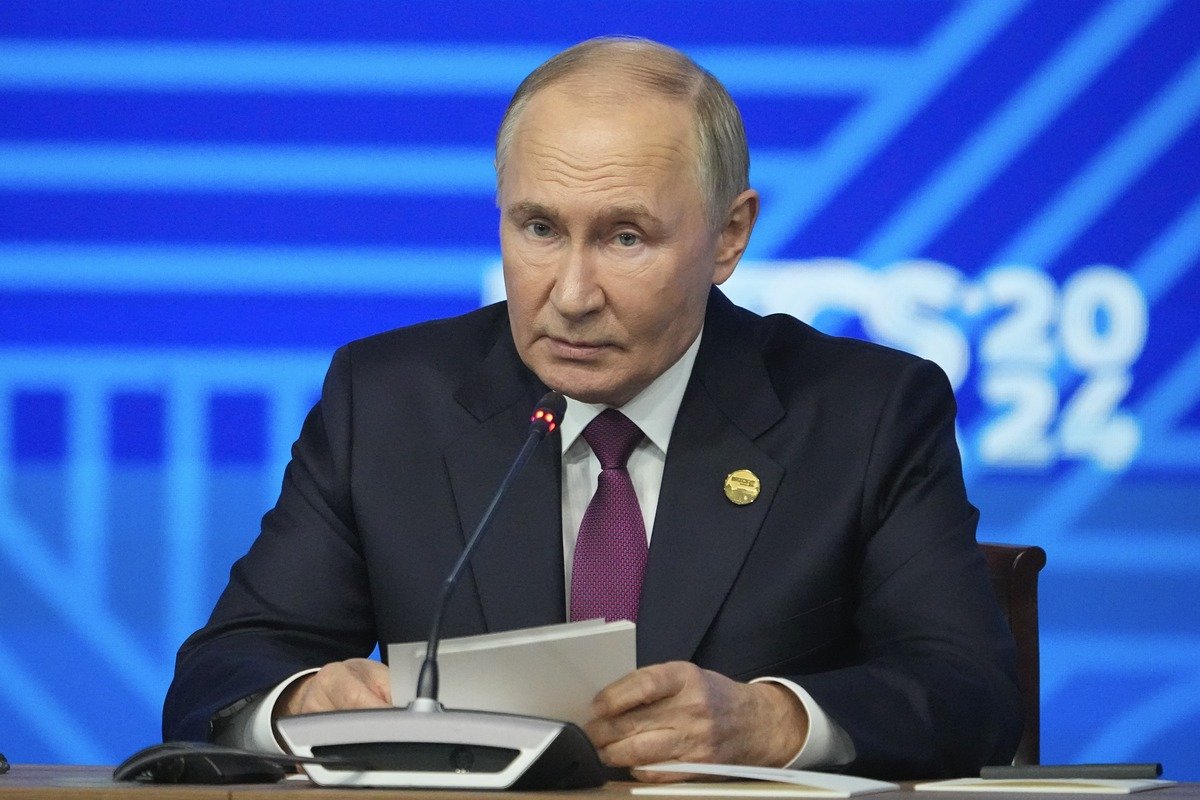Moscow is currently evaluating its strategies to respond if Western nations grant Ukraine permission to conduct strikes deep into Russian territory using long-range weapons supplied by countries like the U.S. This statement from President Vladimir Putin underscores the escalating tensions and the critical nature of military support in the ongoing Ukraine conflict. The Kremlin leader expressed hope that Western nations have taken heed of his concerns regarding the potential consequences of their military assistance.
In a recent message shared on the Telegram messaging app, Putin remarked, "They have not told me anything about it, but I hope they have heard." His comments reflect a cautious approach and a recognition that Russia will need to consider its own defensive measures in light of any new developments. This situation highlights the complexities of modern warfare, where international support can significantly influence the dynamics of conflict.
Despite Kyiv's persistent appeals for the ability to utilize long-range Western weaponry, current restrictions remain in place. While Ukraine is authorized to use short-range weapons to protect its borders, it has resorted to deploying long-range drones to target Russian military assets hundreds of miles away. This tactical shift indicates a growing reliance on innovative strategies to counteract the ongoing hostilities, as well as a determination to strike at the heart of Russian military infrastructure.

The U.S. has provided its Army Tactical Missile System, also known as ATACMS, which can hit targets up to around 190 miles away. Meanwhile, the U.K. and France have supplied the Anglo-French Storm Shadow, or SCALP, cruise missiles, capable of reaching approximately 155 miles. These weapons are intended for use against Russian-controlled areas that are recognized internationally as part of Ukraine.
Germany, a significant ally of Ukraine, has opted not to send its Taurus missiles, which are similar to the Storm Shadow. Recent discussions among Western officials hinted that this restriction might change soon, although an official announcement has yet to be made. This ongoing debate reflects the delicate balance of power and the potential shifts in military capability as nations reassess their roles in the conflict.
As the war in Ukraine continues beyond the two-and-a-half-year mark, the relationships between Russia and many Western countries have deteriorated significantly, reaching a low not seen since the Cold War. Ukraine's reliance on Western support has become increasingly evident, and the stakes are growing higher as diplomatic and military strategies evolve.
Putin indicated that it is "too early" to discuss specific options for responding to potential escalations, stating that military leaders are already contemplating various responses. This hints at the strategic calculations being made behind the scenes as all parties navigate this complex situation.
Putin is bringing up the subject of long-range strikes on Russian territory again.
— Anton Gerashchenko (@Gerashchenko_en) October 27, 2024
This is what he really fears. It is something that will allow Ukraine to actually defend itself against Russian terror. pic.twitter.com/jiwKcfxmLV
In mid-September, Putin warned that allowing Ukraine to utilize these weapons against Russia would equate to direct involvement from Western nations in the conflict. He articulated that NATO countries, including the U.S. and European nations, would be seen as participants in the war, fundamentally altering the nature of the conflict. His remarks signal a readiness to adapt Russia's strategic posture in response to any perceived threats.
NATO has consistently maintained that it is not engaged in warfare with Moscow and does not wish to escalate the situation further. The alliance's repeated affirmations of its non-confrontational stance aim to alleviate fears of a broader war while emphasizing its commitment to supporting Ukraine's sovereignty.
Ultimately, Putin's assertion that Ukraine cannot operate long-range systems autonomously highlights the complexities of military dependence and international alliances. As the conflict continues to unfold, the interplay between military support and strategic decision-making will play a crucial role in shaping the future of both Russia and Ukraine.
Exploring The Unique Las Vegas Underground House: A Modern Castle
Caroline Mabeus: From Camera Shy To Confident - A Remarkable Weight Loss Journey
A Woman Sparks Debate On TikTok Over Her Black Golden Retriever's Authenticity
